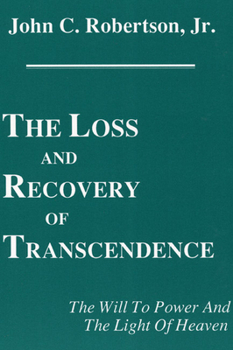The Loss and Recovery of Transcendence
This long-standing series provides the guild of religion scholars a venue for publishing aimed primarily at colleagues. It includes scholarly monographs, revised dissertations, Festschriften, conference papers, and translations of ancient and medieval documents. Works cover the sub-disciplines of biblical studies, history of Christianity, history of religion, theology, and ethics. Festschriften for Karl Barth, Donald W. Dayton, James Luther Mays, Margaret R. Miles, and Walter Wink are among the seventy-five volumes that have been published.
Contributors include: C. K. Barrett, Francois Bovon, Paul S. Chung, Marie-Helene Davies, Frederick Herzog, Ben F. Meyer, Pamela Ann Moeller, Rudolf Pesch, D. Z. Phillips, Rudolf Schnackenburgm Eduard Schweizer, John Vissers
Contributors include: C. K. Barrett, Francois Bovon, Paul S. Chung, Marie-Helene Davies, Frederick Herzog, Ben F. Meyer, Pamela Ann Moeller, Rudolf Pesch, D. Z. Phillips, Rudolf Schnackenburgm Eduard Schweizer, John Vissers
Format:Paperback
Language:English
ISBN:1556350279
ISBN13:9781556350276
Release Date:January 1995
Publisher:Pickwick Publications
Length:124 Pages
Weight:0.43 lbs.
Dimensions:0.4" x 5.6" x 8.5"
Customer Reviews
1 rating
Transcendence Recovered
Published by Thriftbooks.com User , 17 years ago
This is a small book (about 100 pages) that packs quite a wallop. The reader will find here a good review and a sharp analysis of why classical-logical empiricism, the basis for scientific objectivism, fails to provide the only way of possessing knowledge. The claim that religious knowledge can be either summarily dismissed or defended on questionable cognitive or non-cognitive grounds is carefully analyzed and rejected. Robertson then shows why scientific objectivism's dialectical oppostite--humanistic subjectivism--best represented here by Nietzsche, provides both relief from the narrow and rigid constraints of scientific objectivism and emancipation from "morally oppressive" thinking about God. But secular humanism is rejected for its almost obsessive concern with the ideal of unlimited self-assertion and the will to power. A unique insight of this book is the parallel it draws between English philosophers of science and Heideggarian intellectual history. Both expose how the role of human interests--expressed through paradigms historically and politically constructed--drive scientific investigation. One such glaring paradigm is the desire to manage, dominate and control through the use of technology. With this insight Robertson establishes an inner affinity between objectivism and subjectivism: "Both are rooted in ...a way of being in the world, a technological way." This way--the desire to manage and control--effectively shuts down access to the Transcendent. Robertson now attacks on three fronts: First, following the work of H. G. Gadamer, Roberston shows clearly how the technolgical way is only an abstraction from the whole of what humans do; humans exist in a broader and deeper network of social relatedness. Second, as a matter of concrete historical fact, this social relatedness is characterized less by domination than by dialogue. The best part of this book, in my opinion, is how Robertson develops the dynamics of dialogue--which emerges as the dialogical way--as a way of contendeing with "the technological way." The dialogical way depends on and opens wider horizons, and it is within this widening process that the talk of Transcendence can best take place. Third, Robertson provides a needed corrective to traditional theism, one which emphasizes dominance, power, control and self-sufficiency; in fact, thinking in the mode of classical theism seems to flow from the kind of thinking undergirding the technological way. Robertson follows contemporary theologians in reconstructing a concept of God that emphasizes reciprocity and social relatedness. This corrective suggests "a way of seeing God and the world to be so intimately related, that the glorification of God and the love of the earth (and its inhabitants) need not be in competition: properly conceived, they are complementary." Robertson's book is a delight. It is clearly written and tightly argued. I believe that he has shown how the loss of Transcendence can be recovered and how theol





